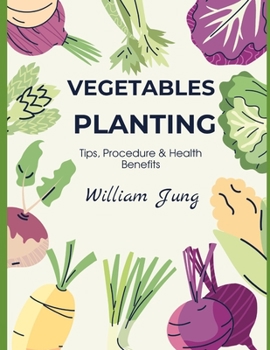Vegetables Planting: Tips,Procedures & Health Benefits
Vegetable gardening is a rewarding and fulfilling hobby that can provide fresh produce for your family and enhance your physical and mental wellbeing. It requires planning, patience, and attention to detail, but the end result is worth it. In this context, here are some tips and procedures for planting vegetables, along with their benefits:
Start with a plan: Before you start planting, decide what vegetables you want to grow, how much space you have, and when you should plant them. Some vegetables need more space and sunlight than others, while some require specific soil types and watering schedules.
Choose the right location: Most vegetables need at least six hours of sunlight per day, so pick a spot in your garden that gets plenty of sunshine. Make sure the soil is fertile and well-drained, and remove any rocks or debris that may interfere with root growth.
Prepare the soil: Adding compost or organic matter to your soil can improve its structure and nutrient content. You can also perform a soil test to determine its pH level and nutrient deficiencies, and adjust it accordingly.
Plant your vegetables: Depending on the vegetable, you may need to plant seeds or seedlings, and space them out according to their specific requirements. Some vegetables, such as beans and peas, benefit from trellising to keep them off the ground and improve air circulation.
Maintain your garden: Water your plants regularly, but avoid overwatering, which can lead to root rot and other diseases. Mulching can help retain moisture and prevent weeds from growing, and pruning can promote healthy growth and fruit production.
Benefits of vegetable gardening include:
Improved physical health: Gardening is a great form of exercise that can improve your cardiovascular health, strengthen your muscles, and boost your flexibility.
Nutritious produce: Growing your own vegetables allows you to control their quality and avoid exposure to harmful chemicals and pesticides. Fresh vegetables are also packed with vitamins, minerals, and antioxidants that can boost your immune system and prevent chronic diseases.
Mental wellbeing: Gardening has been shown to reduce stress and anxiety, improve mood, and enhance cognitive function. It can also provide a sense of accomplishment and purpose.
Sustainable living: Growing your own food reduces your carbon footprint and promotes sustainable living. It also encourages a connection to the environment and a sense of responsibility for its preservation.
Planting vegetables can be a fun and rewarding activity that benefits both your physical and mental health, while providing nutritious produce for you and your family. By following these tips and procedures, you can create a successful vegetable garden and enjoy its many benefits.





